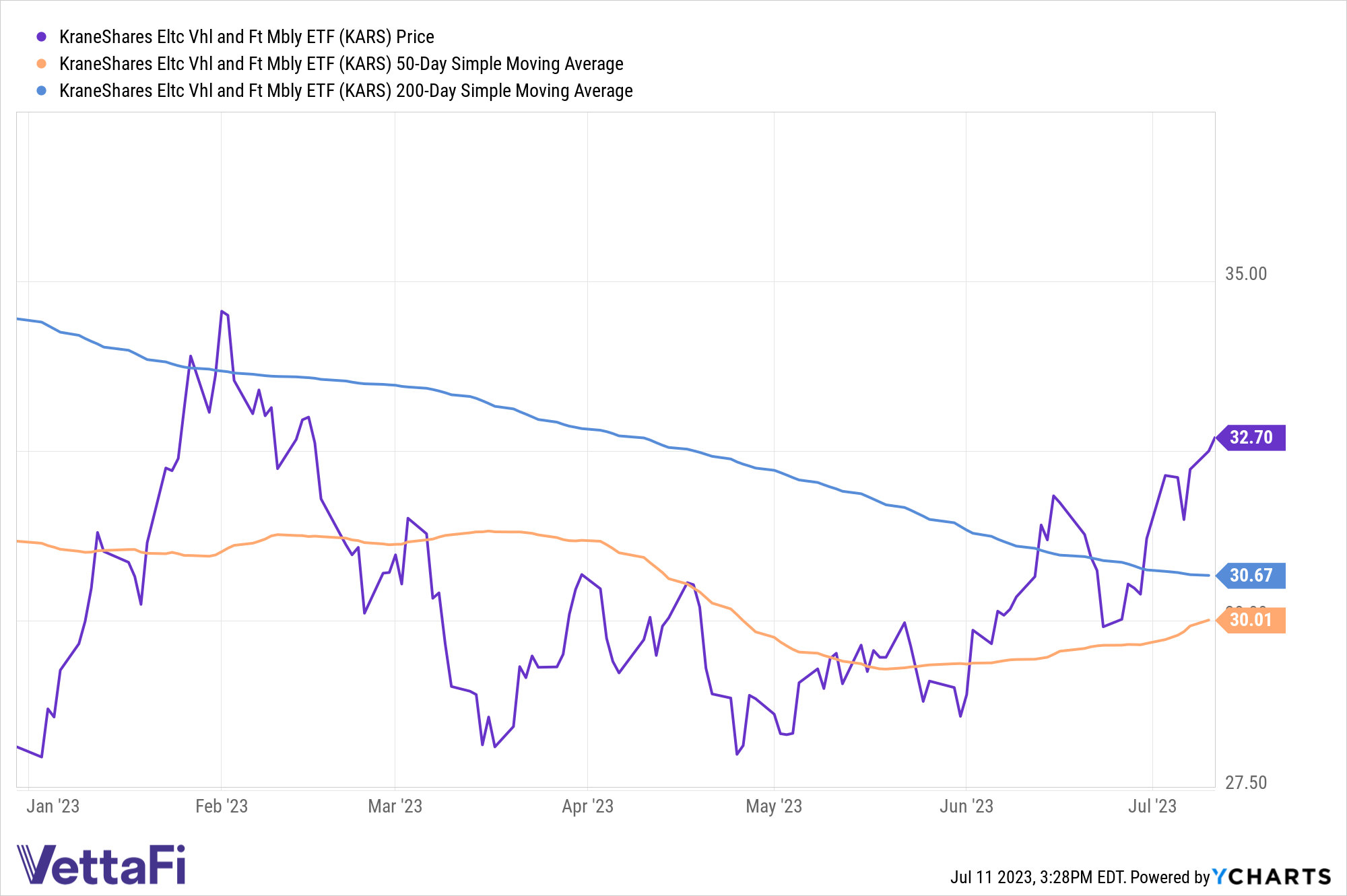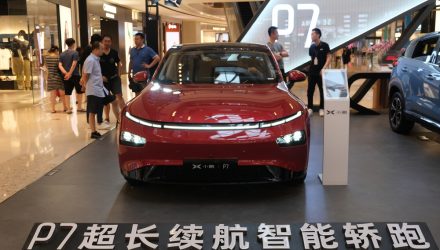Despite economic stuttering and recovery this year, China’s consumer remains on the move, this time in automobile purchases. Electric vehicle sales grew significantly in the first half of 2023 and continue to cut into overall market share. It’s growth that the KraneShares Electric Vehicles and Future Mobility ETF (KARS)
Vehicle sales in China grew nearly 10% in the first half of 2023, while new electric vehicle sales grew 44% over the same period, reported Nikkei Asia. Total vehicles sold in the first half amounted to 13.24 million, of which 3.75 million were EVs. It’s a market share of 28% and continued growth at a time despite government subsidies for EVs ending last year.
Tax exemptions for EVs remain in place in China and were expanded in recent legislation into 2025, a favorable driver for EV demand looking ahead.
See also: “EV Stocks Rise on China’s Newest Tax Breaks, KARS Benefits”
What’s more, China continues to expand its EV market share globally. KraneShares reported in the China Last Night blog a 170% increase in EV exports from China year-over-year in June.
Capture Continued EV Growth in China and Abroad With KARS
The KraneShares Electric Vehicles and Future Mobility ETF (KARS) offers a good solution for investors looking to capture the potential growth of major EV producers globally. The fund takes not just a global approach to EV exposure, but also invests along the entirety of the value chain.

The ETF offers diversification for EV investors and is up 16.20% YTD. KARS crossed above its 200-day Simple Moving Average at the end of June and has remained above both it and the 50-day SMA. Such positioning is typically interpreted as a buy signal for investors and trend followers.
KARS measures the performance of the Bloomberg Electric Vehicles Index, which tracks the industry holistically. This includes exposure to electric vehicle manufacturers, electric vehicle components, and batteries. It also includes hydrogen fuel cells and the raw materials utilized in the synthesis of producing parts for EVs.
KARS invests in many familiar car companies such as Tesla, Ford, and Mercedes-Benz, and major Chinese EV manufacturers such as Li Auto, Nio, and BYD. It also goes a step beyond and invests in the companies that contribute to the EV value chain. These include Samsung, Panasonic, and Albemarle, a major lithium manufacturer.
KARS carries an expense ratio of 0.70%.
For more news, information, and analysis, visit the Climate Insights Channel.

